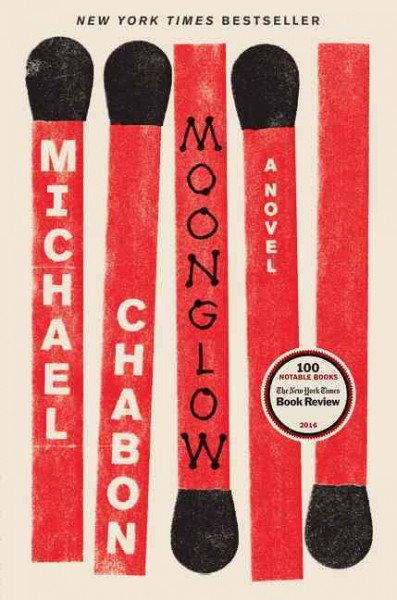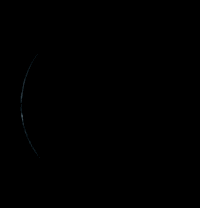by Andrew Hedglin
 Michael Chabon has written a marvelous, lyrical, and haunting new novel, Moonglow, that comes out today, one week after the so-called supermoon. Chabon’s grandfather, the main character in the novel, is not just enraptured by the moon’s beauty, but he knows exactly why: “On the Moon there was no capital to grind the working moon man down. And on the Moon, 230,000 miles from the stench of history, there was no madness or memory of loss. The things that made space flight difficult was the thing that…made it beautiful: To reach escape velocity…any spacefarer would be obliged to leave almost everything behind…”
Michael Chabon has written a marvelous, lyrical, and haunting new novel, Moonglow, that comes out today, one week after the so-called supermoon. Chabon’s grandfather, the main character in the novel, is not just enraptured by the moon’s beauty, but he knows exactly why: “On the Moon there was no capital to grind the working moon man down. And on the Moon, 230,000 miles from the stench of history, there was no madness or memory of loss. The things that made space flight difficult was the thing that…made it beautiful: To reach escape velocity…any spacefarer would be obliged to leave almost everything behind…”
I didn’t start reading Chabon through his well-loved novels like The Amazing Adventures of Kavalier and Clay, or The Yiddish Policeman’s Union (although I do hope to get to them soon), but rather through his lesser known 2009 collection of essays, Manhood for Amateurs, which captured snapshots of his present-day circumstances and life that lead up to it.
With Moonglow, though, you can read the best of both worlds: it’s a novel in structure and poetic license, but it tells the true life story of his maternal grandfather (whose name is never even revealed within the novel). The frame story revolves around the last week of Chabon’s grandfather’s life, in which the normally intensely private person starts to reveal his shrouded history to his grandson while he is under siege from powerful painkillers.
 By that time, Chabon had published his first book, so his grandfather knows exactly the dangerous type of individual he was talking to. In the middle of the story, the grandfather comes to a memory that makes him question the value of this confessional enterprise. Chabon counters that at least it’s a good story, to which the grandfather replies: “Yeah?…You can have it. I’m giving it to you. After I’m gone, write it down. Explain everything. Make it mean something. Use of lot of those fancy metaphors of yours. Put the whole thing in proper chronological order, not like this mishmash I’m making you.”
By that time, Chabon had published his first book, so his grandfather knows exactly the dangerous type of individual he was talking to. In the middle of the story, the grandfather comes to a memory that makes him question the value of this confessional enterprise. Chabon counters that at least it’s a good story, to which the grandfather replies: “Yeah?…You can have it. I’m giving it to you. After I’m gone, write it down. Explain everything. Make it mean something. Use of lot of those fancy metaphors of yours. Put the whole thing in proper chronological order, not like this mishmash I’m making you.”
Fortunately, Chabon ignores this last dictum. The novel defies a normal dramatic arc, which is the only way to examine and come to the conclusion that Chabon does: that after his grandfather’s death, his life, with all of it’s problems, was a good one.
On the way to that verdict, Chabon tells the story of his grandfather’s life in a pretzel: lost jobs, his time in the army in World War II engaging in Operation Paperclip, his stint in prison for trying to murder his boss, his journey from engineer to modelmaker, and one last twilight romance between two widowers. He touches on the global (the crimes and triumphs of Wernher von Braun) and the personal (his grandmother’s post-Holocaust refugee life and grave mental illness) to tell the story of a life, one life, flickering under the glow of his grandfather’s beloved moon.
Signed first editions of Moonglow are available for order on our website.


Comments are closed.